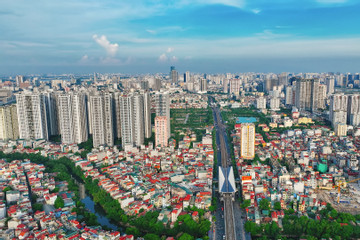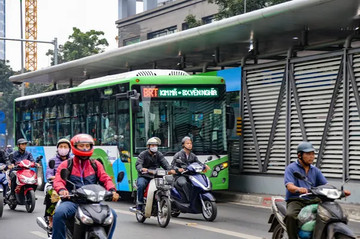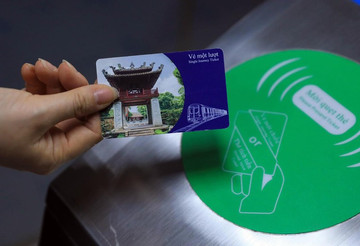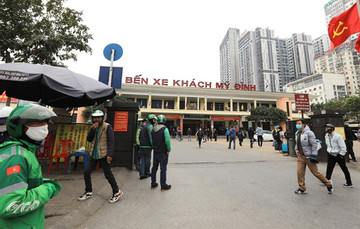- © Copyright of Vietnamnet Global.
- Tel: 024 3772 7988 Fax: (024) 37722734
- Email: evnn@vietnamnet.vn
public transport
Update news public transport
Ho Chi Minh City launches 17 electric bus routes to support Metro Line 1
Nearly 100 electric buses have arrived in Ho Chi Minh City, ready to connect residents to Metro Line 1 as part of a sustainable and modern public transportation network.
Hanoi plans to build nearly 600km of urban railway by 2045
The initiative is aimed at reducing traffic congestion, improving transportation infrastructure, boosting the city’s socio-economic growth and mitigating environmental pollution.
HCM City to complete 510km metro network by 2045
By cutting its metro timeline by 15 years, HCM City is positioning itself as a leader in urban transport innovation.
Electrifying Hanoi: greening the capital with electric vehicles
The fundamental solution to reversing the worsening pollution lies in ’greening’ millions of vehicles
Vietnam’s first metro line ready for operation, tickets start at VND 6,000
Metro Line 1 in Ho Chi Minh City has achieved a major milestone, with construction completed and operations scheduled to begin on December 22, 2024.
HCM City launches metro line 1 fares: Unlimited day pass at VND 40,000
Ho Chi Minh City has finalized the fare structure for Metro Line 1, offering affordable pricing options, including a VND 40,000 ($1.57) unlimited day pass.
Hanoi unveils $2 billion plan to revolutionize public transport with green buses
By 2035, Hanoi aims to transition 50% of its buses to electric vehicles and the remaining 50% to those powered by compressed natural gas (CNG) or liquefied natural gas (LNG).
What are Hanoi's choices for public transport by 2030?
In developing public transport to 2030, Hanoi should choose a low-cost, high-efficiency model with investment made in stages – short, medium and long term, according to architect Tran Huy Anh.
The ‘formula’ to build 600 km of subway in Hanoi
TOD (Transit Oriented Development), an urban development model with public transport put at the center, is believed to be the key for Hanoi to build a railway network, increase land values, and develop new economic centers.
Hanoi to deploy offline virtual ticket for public transport commuters
The Hanoi Public Transport Management Centre will offer offline mode for virtual tickets for public transport from September 20 to make it more convenient for city’s commuters, its director Thai Ho Phuong said on September 18.
Hanoi speeds up process to 'green' public transport
Hanoi has been taking moves to 'green' public transport, especially when people in the capital city show their increasing interest to means of transport like electric vehicles and metro lines.
TOD pilot projects in HCM City still on paper after a year
The implementation of the Transit-Oriented Development (TOD) model in Ho Chi Minh City, as permitted by Resolution 98, aims to address urgent urban traffic issues and relieve urban space congestion.
Company proposes building self-driving tram line in HCM City
A private investor has proposed to build a self-driving tram line running on HCM City’s canals to reduce congestion near Tân Sơn Nhất airport.
Experts support the removal of countdown timers from traffic signals
Drivers will be more proactive and roads safe, if traffic light timers are removed say experts.
Hanoi to go green with electric buses by 2035
Between 2026 and 2030, Hanoi aims for a mix of electric buses (50 per cent_ and buses powered by cleaner burning fuels like liquefied natural gas (LNG) or compressed natural gas (CNG) (50 per cent).
Hanoi should shift to all electric buses by 2030: expert
This chair of the Vietnam Clean Air Network, Hoang Duong Tung, has praised Hanoi’s plan to spend VND43 trillion to develop green buses.
Hanoi to build 10 urban railway lines, reduce traffic congestion
The capital city of Hanoi needs $40 billion to develop 10 urban railway routes expected to be a critical solution to traffic congestion, which causes damages worth $1 billion a year to the city.
Is BRT in Hanoi coming to an end?
An assessment of public transport service capacity after 12 years of implementing the urban railway network plan reveals that the bus system still plays a dominant role.
Hanoi to introduce electronic ticketing for public transport in 2024
Hanoi’s transport department is planning to introduce a unified electronic ticketing system for its public bus and metro services in 2024.
Hanoi adds nearly 2,500 coach trips for the New Year holidays
People will have a three-day holiday for the New Year, and another seven-day for the traditional Lunar New Year celebrations.



















